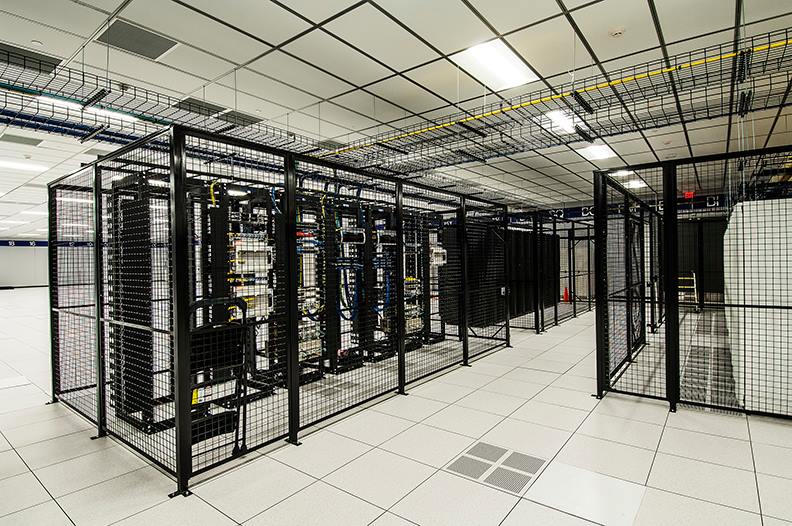
In today’s ever-evolving digital landscape, companies are increasingly reliant on their IT infrastructure to remain competitive and responsive to market demands. One critical aspect of IT modernization is server migration services—the process of transferring data, applications, and workloads from one server to another.
Whether moving to an updated server, cloud-based infrastructure, or co-located data center, server migration ensures that businesses can adapt to new technologies, maintain operational efficiency, and scale as needed.
In the USA, server migration services are in high demand as companies grow and expand their digital operations. In this guide, we’ll explore the key components of server migration, its benefits, and why businesses should consider professional migration services to ensure a seamless transition.
What Is Server Migration?
Server migration refers to the process of moving data, applications, and other critical components from one server environment to another. This can include migrations between on-premise servers, from on-premise to cloud servers, or moving from one cloud provider to another. It’s a complex procedure that requires careful planning, execution, and testing to ensure minimal disruption to business operations.
There are several types of server migration, including:
- Data Migration: Moving all company data from one server to another.
- Application Migration: Transferring business applications to a new server or platform.
- Database Migration: Moving databases from one storage or management system to another.
- Cloud Migration: Shifting workloads from physical servers to cloud infrastructure.
The Importance of Server Migration Services
Server migration is essential for businesses that need to scale, upgrade infrastructure, enhance security, or improve system performance. The USA, being one of the world’s most technologically advanced markets, witnesses a large number of companies opting for server migration as part of their digital transformation journey.
Server migration services help businesses by:
- Improving Performance: Moving to a newer, faster server environment can lead to better system performance, faster processing speeds, and more reliable uptime. Outdated servers can become bottlenecks, hindering productivity and customer satisfaction.
- Reducing Costs: By consolidating servers or moving to a more cost-effective cloud solution, businesses can significantly reduce their operational expenses. Cloud-based environments are typically more affordable than maintaining multiple on-premise servers.
- Enhancing Security: Older servers are more prone to security vulnerabilities. Server migration allows businesses to upgrade to more secure environments that include modern security features such as enhanced encryption, monitoring, and firewall systems.
- Scaling for Growth: As companies grow, so do their IT demands. Server migration enables businesses to scale their infrastructure to handle more traffic, data, and application workloads without experiencing performance issues.
- Compliance with Regulations: Many industries, especially in the USA, are governed by strict regulations concerning data management and storage. Server migration can help businesses ensure compliance with industry standards like HIPAA (for healthcare), FINRA (for finance), and GDPR (for companies handling personal data).
Steps for a Successful Server Migration
Server migration, though beneficial, can be a complex and time-consuming process. Here are the essential steps involved in ensuring a smooth migration:
- Planning and Assessment: Begin by assessing your current infrastructure. Determine what needs to be moved, the timeline for migration, and the potential challenges. A detailed migration plan helps identify risks and prepare contingencies.
- Data Backup: Before migration, ensure that all your data is backed up. This serves as a safety net in case of data loss or corruption during the migration process.
- Migration Strategy: Choose the right migration method based on your business needs. For example, live migration allows for minimal downtime, while cold migration is used when the server can be temporarily shut down.
- Testing: Once migration is complete, test the new environment thoroughly to ensure everything is functioning as expected. This includes verifying application performance, network configurations, and data integrity.
- Go Live and Monitoring: After testing, the server can go live. However, it’s important to continue monitoring the system for any issues that may arise in the early days of the migration.
Server Migration Challenges
Server migration is not without its challenges. Some common obstacles businesses face during the migration process include:
- Downtime: A poorly planned migration can lead to extended periods of downtime, impacting business operations.
- Data Loss: Migration errors can result in partial or total data loss.
- Compatibility Issues: Applications and databases may not work properly in the new environment, causing operational issues.
By leveraging professional server migration services, businesses can mitigate these risks and ensure a smooth transition.
Why Choose Reboot Monkey for Server Migration Services?
When it comes to reliable server migration services in the USA, Reboot Monkey is a trusted partner for businesses looking to enhance their IT infrastructure. Our expert team specializes in handling complex migrations, ensuring minimal downtime and zero data loss. With a focus on security, scalability, and efficiency, we tailor our migration solutions to meet the unique needs of every client.
At Reboot Monkey, we offer comprehensive server migration services, including:
- Data Backup and Recovery: To ensure your data is protected during the migration process.
- Scalable Solutions: Whether you’re moving to a larger server or transitioning to the cloud, we provide scalable migration strategies.
- 24/7 Support: Our dedicated team is available around the clock to address any concerns and ensure a seamless migration experience.
With our expertise and customer-first approach, Reboot Monkey helps businesses across the USA and the UK achieve successful server migrations, enabling them to focus on growth and innovation.
Ready to migrate your server? Contact Reboot Monkey today and let us guide you through the process!
By partnering with Reboot Monkey, businesses can enjoy peace of mind knowing that their server migration is handled by experts committed to delivering seamless results.




